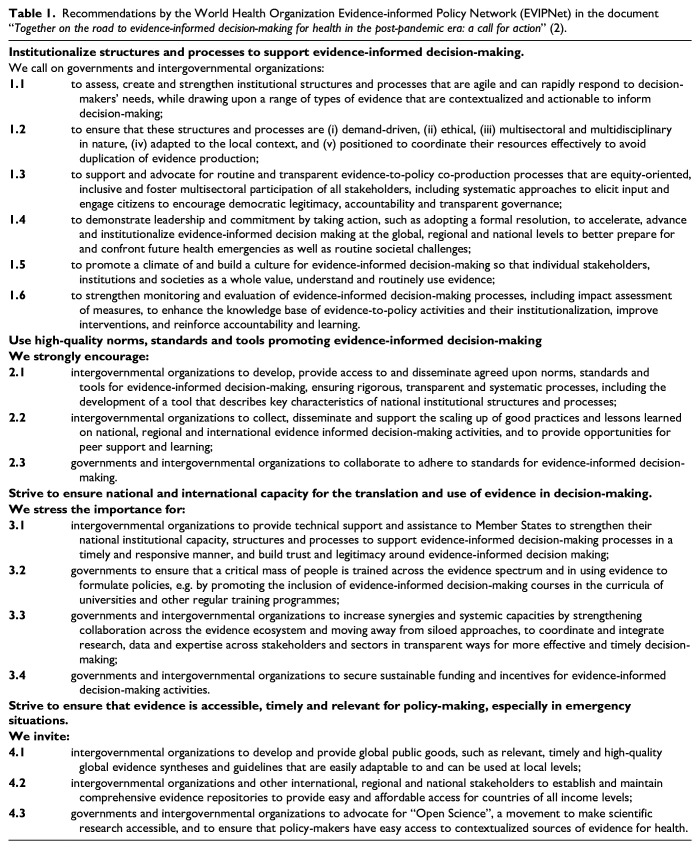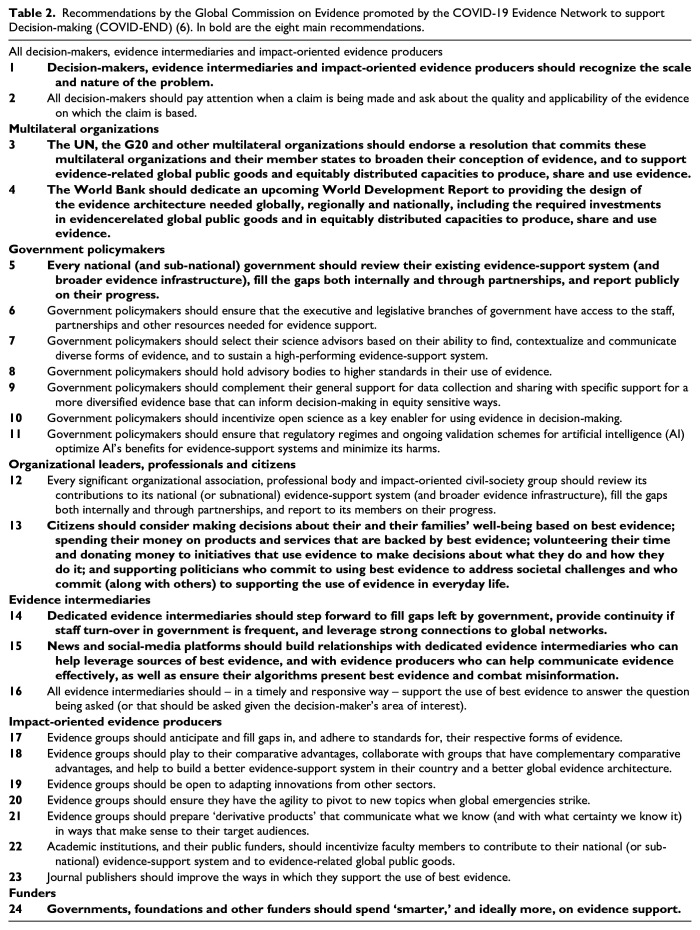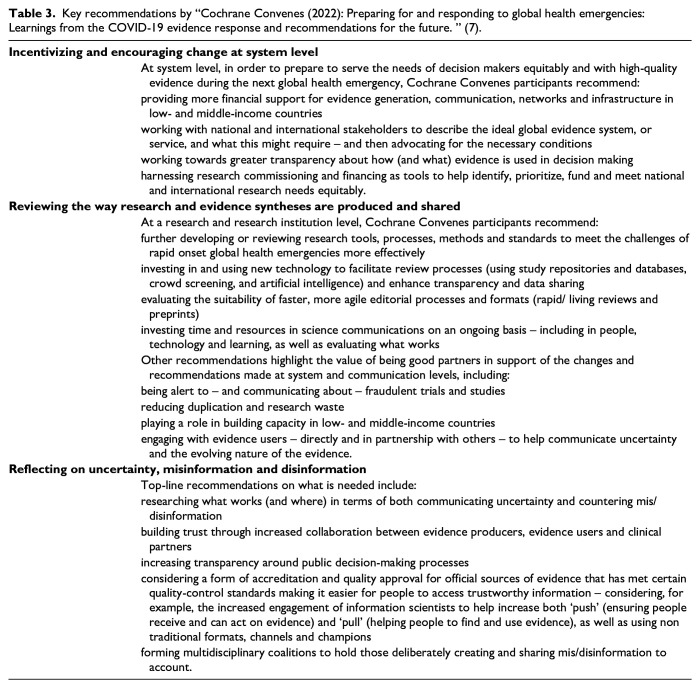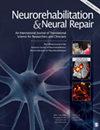Global statements to produce and implement evidence in the post-COVID-era provide a path forward for rehabilitation - A joint initiative of Cochrane Rehabilitation and the leading journals in the field.
IF 3.7
2区 医学
Q1 CLINICAL NEUROLOGY
Neurorehabilitation and Neural Repair
Pub Date : 2022-09-01
Epub Date: 2022-09-22
DOI:10.1177/15459683221125044
引用次数: 1
Abstract
Three fundamental resources to promote and support evidence were published at the end of 2021 and the start of 2022. The purpose of these contributions was to emphasize one of the main lessons learned from the COVID-19 pandemic and specifically its impact on medicine: the importance of using evidence to make decisions. These initiatives captured the attention of Nature1, with an editorial that focused on the impact that evidence could and should have beyond health, informing decisions relevant to global challenges, using the best available up-to-date or “living” evidence. The Nature editorial pointed out the low quality of many publications dedicated to COVID-19 during the pandemic, an opinion shared by editors of rehabilitation journals, who also noticed an increase in the incidents of misconduct, in particular attempts of duplicate publications. In this paper, we summarize for the rehabilitation audience the main recommendations of the 3 groups that worked simultaneously but independently on the use of evidence in health decisionmaking. The conclusions were similar, a finding that reinforces their importance. The World Health Organization (WHO) Evidenceinformed Policy Network (EVIPNet) published the document “Together on the road to evidence-informed decision-making for health in the post-pandemic era: a call for action”2. The document recommends 4 main actions (Table 1), mainly directed to governments and policy decision-makers: 1) institutionalize structures and processes to support evidence-informed decision-making; 2) use high-quality norms, standards and tools promoting evidence-informed decision-making; 3) strive to ensure national and international capacity for the translation and use of evidence in decision-making; and 4) strive to ensure that evidence is accessible, timely and relevant for policymaking, especially in emergencies. Each action is supported by enabling strategies that provide a practical way forward for implementation. As stakeholders in health and social systems and as part of the evidence ecosystem, readers can promote, support and implement these actions. The COVID-19 Evidence Network to support Decisionmaking (COVID-END)3 is a global organization launched by McMaster University in Canada at the start of the pandemic to cope with COVID-19 by using the best available evidence. COVID-END includes most organizations active in the prevention and management of COVID-19, including Cochrane4 and Cochrane Rehabilitation5. In 2021, COVIDEND convened the Global Commission on Evidence to Address Societal Challenges to change the global panorama on evidence generation beginning with the lessons learned during the COVID-19 pandemic. The commission published a report titled “A wake-up call and path forward for decision-makers, evidence intermediaries, and impact-oriented evidence producers”6. The title flags the need for immediate, targeted action to ensure high-quality, timely, relevant and feasible decision-making in systems affecting individual, family, community and societal well-being. Core to the report is the concept of the best available research evidence. The report preamble explains “now is the time. . . [for] creating the capacities, opportunities and motivation to use evidence to address societal challenge, and putting in place the structures and processes to sustain them”. The commission explored the levels, sectors and complexity of societal challenges needing evidence; decision-making processes and who decision-makers are; forms of evidence encountered in decision-making; how forms of evidence can be mapped to decisions; the need for high quality local and global evidence; the critical role of system infrastructure for evidence-based decision-making; and the role of evidence intermediaries, public goods and distributed capacity. The report presents recommendations that encompass the framing/approach, structures and processes, accountabilities and funding, together with actions that emerge from these foundations. The document includes 8 1125044 NNRXXX10.1177/15459683221125044Neurorehabilitation and Neural RepairNegrini et al research-article2022



在covid - 19后时代产生和实施证据的全球声明为康复提供了前进的道路-这是Cochrane康复和该领域领先期刊的联合倡议。
本文章由计算机程序翻译,如有差异,请以英文原文为准。
求助全文
约1分钟内获得全文
求助全文
来源期刊
CiteScore
8.30
自引率
4.80%
发文量
52
审稿时长
6-12 weeks
期刊介绍:
Neurorehabilitation & Neural Repair (NNR) offers innovative and reliable reports relevant to functional recovery from neural injury and long term neurologic care. The journal''s unique focus is evidence-based basic and clinical practice and research. NNR deals with the management and fundamental mechanisms of functional recovery from conditions such as stroke, multiple sclerosis, Alzheimer''s disease, brain and spinal cord injuries, and peripheral nerve injuries.

 求助内容:
求助内容: 应助结果提醒方式:
应助结果提醒方式:


